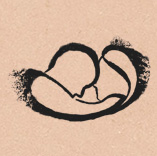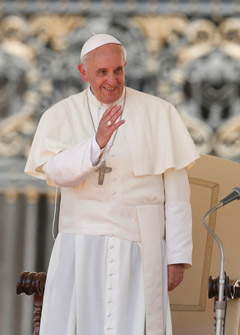 Catholic Marriage: Infertility vs. Impotency
Catholic Marriage: Infertility vs. Impotency
I’ll admit it: at one point, I was confused about the Catholic sexual ethics of infertility. On one occasion, I was having coffee with a secular friend who asked me all kinds of questions about what married couples could and could not do, Josephite marriages, the difference between infertility and impotency, and even bizarre hypotheticals like “what if one of the spouses developed a disease that made having sex fatal for six months?!” While I can’t promise that this post will answer that last question, hopefully it will make the Church’s teachings on impotence and infertility a bit clearer.
The Catholic Church teaches that those who are impotent—that is, those who are incapable of having sexual intercourse—cannot marry. (I know, to the modern ear, like my friend, this might sound odd and even harsh). Because procreation and unity are the two natural ends of marriage, and because both of these ends are fulfilled in the sexual embrace, it follows that the sexually impotent cannot marry. As per the Code of Canon Law No. 1084, §1: “Antecedent and perpetual impotence to have intercourse, whether on the part of the man or the woman, whether absolute or relative, nullifies marriage by its very nature.” By “antecedent” and “perpetual,” it is meant that one cannot be impotent either before marriage (antecedent) or permanently during marriage (perpetual);[1] this means that one is considered impotent if they cannot have intercourse at all or if they cannot have intercourse specifically with his or her spouse.
It is important, however, to clarify what being impotent does not mean. Impotence is not infertility. While impotence means the inability to have sex, infertility means the inability to conceive children. Thus, impotence and sterility/infertility are not the same. The Church does not consider infertility as an impediment to marriage, and married couples who suffer from infertility have marriages just as natural and valid as those who are able to conceive children.
But one might object: how can an infertile couple fulfill the procreative end of marriage if they cannot conceive children? In answer to this question, the Church maintains that a couple can be infertile but nonetheless remain open to life. 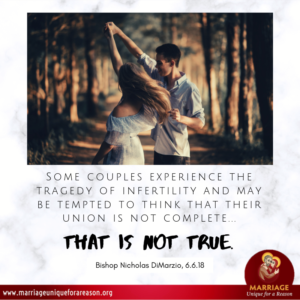 How can this be, knowing that their marital embrace will not result in conceiving a child? If we remember back to our earliest posts on the meaning of nature, we established that human beings possess a distinct human nature, one impulse of which is an inclination to procreate. Like all mammals, human beings are endowed with the complimentary sex organs in order to carry out this task. These sex organs have an end or a purpose: to facilitate procreation.
How can this be, knowing that their marital embrace will not result in conceiving a child? If we remember back to our earliest posts on the meaning of nature, we established that human beings possess a distinct human nature, one impulse of which is an inclination to procreate. Like all mammals, human beings are endowed with the complimentary sex organs in order to carry out this task. These sex organs have an end or a purpose: to facilitate procreation.
Sometimes, there is a defect in the sex organs that makes the fulfilling of this end impossible: if the sex organs are constructed such that a man and a woman cannot properly unite, then this would be a case of impotence. However, sometimes the impediment is not due to the functionality of the sex organs, but due to other factors that make conception impossible. In other words, if a couple is capable of having intercourse, then they are still capable of using their sex organs for their natural purpose, even if they know that the procreative end of the sex organs cannot be achieved.
We encounter these kinds of scenarios in our day-to-day lives all the time. For instance, it does not betray the natural end of the digestive organs to eat one when is not hungry. I can enjoy a piece of cake even if I know it won’t nourish me because eating in general is the natural function of my digestive system. The fact that my body is not nourished by the cake does not mean I have done something wrong. However, imagine now that I eat an inordinately large portion of cake for the express purpose of purging it later. This would be an abuse of my digestive organs, if I intentionally used my organs for a purpose contrary to their nature.
In this way, couples who affirm the natural end of the sex organs while struggling with infertility are nonetheless open to life despite for some reason not being able to have children. They do nothing to make intercourse sterile but give themselves to each other as they are. By having intercourse, the couple affirms the natural end of procreation in itself. They affirm that the sexual embrace between husband and wife is naturally designed for the procreation of children. We can think about it this way: an infertile couple may know with almost complete certainty that they will not conceive a child. But the infertile couple is still open to life in the sense that if, against all odds, sexual intercourse did lead to conception, the married couple would be open to this new life. Why? Because this is what sexual intercourse was designed to do.
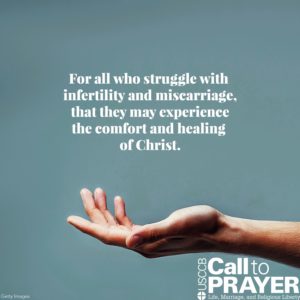 This is also the same logic behind Natural Family Planning. Unlike the couple suffering with infertility, a married couple may decide that a certain time is not practical for conceiving a child, so they reserve intercourse to the infertile time when conception is unlikely. However, the married couple is still open to life in the sense that if they were to conceive a child during this time, they would nonetheless be open to children. They do nothing to sterilize an act of intercourse by abstaining from sex at that time.[2]
This is also the same logic behind Natural Family Planning. Unlike the couple suffering with infertility, a married couple may decide that a certain time is not practical for conceiving a child, so they reserve intercourse to the infertile time when conception is unlikely. However, the married couple is still open to life in the sense that if they were to conceive a child during this time, they would nonetheless be open to children. They do nothing to sterilize an act of intercourse by abstaining from sex at that time.[2]
Again, couples that struggle with infertility are no less open to life than couples who have no problem conceiving, and their marriages are no less valid or fruitful. As St. Pope John Paul II said in a message to infertile couples in a 1982 homily, “You are no less loved by God; your love for each other is complete and fruitful when it is open to others, to the needs of the apostolate, to the needs of the poor, to the needs of orphans, to the needs of the world.”[3]
In our next post, we will continue to discuss infertility and the licit methods for treating it. We will see that some methods of treating infertility, even certain technological ones, are perfectly licit, while others are gravely immoral.
______________________________________________________________
[1] By the way, this comment is merely a logical distinction. It in no way affirms that people ought to have sexual intercourse before/outside of marriage.
[2] The same logic is behind Josephite marriages (an extremely rare example). If a married couple decides (together!) that they are called to abstain from intercourse, this does not render their marriage invalid, since they are still capable of having intercourse and are thus open to life. The Josephite couple recognizes and affirms the natural end of the sexual embrace, and it is still an integral part of their marriage even if they are not actively trying to conceive children
[3] Pope John Paul II, “Homily at the Mass for Families During the Apostolic Pilgrimage to Nigeria, Benin, Gabon and Equatorial Guinea” (Rome, 13 February 1982) http://www.vatican.va/content/john-paul-ii/en/homilies/1982/documents/hf_jp-ii_hom_19820213_onitsha-nigeria.html
About the Author: Bridget Groff is an M.A./Ph.D. student in the School of Philosophy at the Catholic University of America. She currently works part-time at the United States Conference of Catholic Bishops as an intern for the Subcommittee for the Promotion and Defense of Marriage.
Archive
Nature Part Three
Intro to Nature: Part Three
Today, we are going to address some ambiguities with regard to the way we often use the word “nature,” building on the last posts. Last time, we finished discussing Fr. Wallace’s two-fold conception of nature, breaking it down into (1) natural things and (2) their activities. When combined, natural things and their behaviors make up the whole world of nature. We emphasized strongly in our last post the importance of inherent natures, which are both the source of and that in virtue of which natural things live-out their particular behaviors and activities. In today’s post, we are going to talk in more detail about specific natures and why distinguishing them is so important for deciding what is natural and unnatural.
It is a mistake to use the word “nature” univocally, which means to treat all senses of a word as if they were the same. We often fail to distinguish “nature” in a general sense—the sense which characterizes the whole world of nature—from substances which have specific natures and activities which derive from those natures. We often do not realize that when we call something “natural” or “unnatural,” we actually mean that it’s either natural or unnatural in a certain way or a certain respect. Remember the example in our last post about the dog wearing a Halloween costume? For dogs to wear clothing is unnatural – it doesn’t belong to a dog’s nature to wear clothes. But we can still say that it is natural for human beings to wear clothing (we’ll discuss this in more detail later).
To make matters more complicated (or more fun depending how you look at it!) the same activity could be considered either natural or unnatural for a subject, depending on which way you look at it. For instance, it is “natural” for beavers to eat potato chips when they are offered them, insofar as they are animals, and animals need to eat to survive. If you starve a beaver and then offer it Doritos, it will eat them. But potato chips are not a typical food for a beaver. A beaver does not seek and find potato chips in its natural habitat; in fact, we would find it odd and “unnatural” for a beaver to seek out, eat, or crave potato chips. We know what a beaver is, and a potato-chip-eater is not what comes to mind. So in this case, it is the specific nature of the beaver that makes the eating of potato chips unnatural. Eating potato chips is both natural and unnatural for a beaver, depending on how you look at it.
Now, humans are defined as rational animals. Our rational nature is what sets us apart from other animals, and we engage in particular activities in virtue of our rationality. When we use our reason to deliberate and make decisions, when we use our free-will to act on our choices, this is natural for us. Recall what we said about how it is natural for human beings to wear clothing. St. Thomas makes this helpful distinction in the Summa (while discussing marriage, no less!):
A thing is said to be natural in two ways. First, as resulting of necessity from the principles of nature; thus upward movement is natural to fire. In this way matrimony is not natural, nor are any of those things that come to pass at the intervention or motion of the free-will. Secondly, that is said to be natural to which nature inclines although it comes to pass through the intervention of the free-will; thus acts of virtue and the virtues themselves are called natural; and in this way matrimony is natural, because natural reason inclines thereto in two ways.[1]
What St. Thomas explains here is that interventions on the part of our free will are unnatural in one sense, and natural in another. Using matrimony as an example, he explains that some things that humans do are not natural in the sense that they “just happen” according to the world of nature, e.g., the way that fire tending upwards “just happens.” However, some things that arise from intervention or force can be natural insofar as the impulse for them comes from our nature. So, we don’t just somehow “become married” by natural forces; We choose to marry. However, we do so because we naturally seek union with someone of the opposite sex in order to help rear, educate, love our children. It is reasonable. Likewise, human beings wear clothing not only because it protects us from the elements, but also to adorn ourselves and to safeguard modesty. To wear clothing therefore follows from our nature, as it is a reasonable thing to do.
In our next and last post, we are going to wrap up our discussion on nature by using what we have learned to tackle a moral dilemma. Remember our friend from Part One, who argued that contraception is no different than any other “natural” process? Well, next we are going to show how this position falls into the very trap that we have been discussing today, and then we are going to formulate our response. Stay tuned!
[1] ST Suppl., Q. 41, Art. 1
About the Author: Bridget Groff is an M.A./Ph.D. student in the School of Philosophy at the Catholic University of America. She currently works part-time at the United States Conference of Catholic Bishops as an intern for the Subcommittee for the Promotion and Defense of Marriage.
Archive
Nature Part Two
Intro to Nature: Part Two
Today we are going to talk more about the 2nd way of conceptualizing nature as mentioned in the first post and see how it is related to the 1st way. [1]
Last time, we began by talking about Fr. William Wallace’s two-fold conception of nature: (1) What is free from human intervention and contamination and (2) activities or behaviors that originate from within an agent. Then, we took a closer look at the first conception and clarified the distinction between what is natural and what is artificial. Now, we are going to go into Fr. Wallace’s second conception.
In our first post, we talked about how Fr. Wallace’s first sense of the natural is to be contrasted with the artificial. In this post, we will see that his second sense of nature also gives way to an important contrast: natural activities are to be contrasted with activities that result from force and coercion. In order to make this contrast more apparent, let’s start by talking about activities and their agents. An activity is something done by an agent, and an agent is who or what does an activity. Let’s give a few examples of some activities and their agents: Human beings play sports, eat, watch television. Birds fly; dogs bark; beavers build dams. Notice that all of these agents are things that we identified as “natural” according to our first conception of nature. That is, none of these agents are artificial. It is, in fact, impossible for artificial things to be agents of activity. We see this clearly if we contrast the activities of a natural thing with those “activities” of an artificial thing, such as a kitchen appliance.
A natural thing, like an animal, has a body that self-maintains; it eats, it moves around, it builds itself a shelter, etc., and all of these activities it does “spontaneously” [2] and from within. The animal doesn’t need to be told or convinced to do these things; it just does. This is because the animal has its own “source” of motion or activity—itself; its nature. This is, in fact, the definition of nature laid down by Aristotle in his Physics, “a natural principle of motion or rest in the thing to which it belongs primarily and in virtue of that thing, but not accidentally.”[3] Aristotle is saying that natural things, those things which come into being and function on their own, have an internal principle—something they possess— which accounts for this coming into being and functioning. For example, the beaver has a “beaver nature,” which accounts for what it is and what it does. In virtue of this nature, it builds dams. Building dams is one way that a beaver lives out its nature. Now, we can see that a nature, a “source” of activity, is much more than just what prompts an activity or sets an activity in motion. A thing’s nature is also that for the sake of which it performs all of its activities. In other words, a nature “dictates” the kinds of activities that promote and maintain the flourishing of the thing and its nature. Everything that a beaver does is done in virtue of its beaver nature and for its beaver nature; e.g., beaver nature dictates that the beaver build dams, and the building of dams in turn allows the beaver to flourish in accord with its very nature. This is what prompts our intuition that natural things, like animals, “do what comes naturally.” We know and anticipate that things will act according to the kind of thing that they are. For example, if a beaver grabbed a bag of chips in its paws and sat down next to us on the couch to watch Friends, we would be surprised.
Now that we understand the way in which natural things are agents of their activities, we are in a place to see how artificial things can never be agents of activity. A kitchen appliance, like a toaster, is an artificial thing. Human beings designed and fashioned it for the purpose of toasting—we decided what its function would be. We decided how it would work as well. Because everything that the toaster does is pre-determined by the way we designed and built it, nothing that the toaster does can be said to originate from “within” the toaster itself in the way that actions arise from “within” natural agents. As we discussed above, for an action to arise “from within” an agent means both that the action is a result of the agent’s nature and that the action is done for the sake of the agent’s nature. The toaster, however, does not have its own source of activity, its own nature by which and for the sake of which it performs its functions. On the contrary: everything the toaster “does” is for the sake of the person using it. Toasters are actually for the sake of human nature. For this reason, nothing that a toaster does arises from “within.”
This is why activities that artificial things appear to do on their own are actually things that we have done to it. For example, we don’t physically heat up the coils of the toaster or make the toast pop up ourselves. It appears that these actions really do originate from “within” the toaster. However, the fact that we don’t do these things immediately or directly doesn’t mean that they therefore originate “from within” the toaster, that the toaster itself “does them.” Even though we do not heat the toaster ourselves, we nonetheless put in place the mechanisms that make it do so. In this way, everything that the toaster “does” is really just a by-product, so to speak, of the way we have designed the toaster to function for our ends, our sake, our nature.
Now that we have Aristotle’s account of nature, it is easy to explain why Fr. Wallace contrasts natural activities with those that arise from force or coercion. Sometimes, force or coercion is called “violence.” These terms—force, coercion, violence—have a negative connotation in our language, often meaning something that is intentionally mean or malicious. In this specific context, however, these terms don’t have any such implications. To act from force or coercion means that a thing is acted upon externally so that it does something opposed to its natural inclination. For example, rocks by their nature tend downward. If I pick up a rock and throw it in the air, I have just done violence to the rock. This motion is, therefore, unnatural for the rock. When Fr. Wallace says that natural behaviors are those which arise from within an agent and thus arise without force or coercion, he is emphasizing the fact that certain activities follow necessarily from the natures of things, and any activity done to a thing which is contrary to its nature is unnatural.
We now understand both senses of nature that Fr. Wallace distinguishes and how they are related. Sometimes, we talk about natural things, and sometimes we talk about natural activities or behaviors. However, these two senses of the natural are interdependent. Natural things possess natures that account for what they are and what they do; natural activities are rooted in and depend upon the natures of their agents. Thus it is only by combining natural things and their distinctive activities that we have a full picture of the natural world:
“Combining the two senses, we may characterize the world of nature as what is capable of coming into existence apart from human influence and as made up of things that have within themselves natures or internal sources of their distinctive activities. Nature is thus populated by plants and animals of various kinds, by chemical elements and compounds, by hosts of elementary particles. by galaxies, stars, and planets…” [4]
We now have also a better sense of the way we use the words “natural” and “unnatural.” Sometimes, we say “that’s unnatural” unqualifiedly when referring to an object, the thought being “this thing does not belong to the world of nature.” For example, we say that a plastic water bottle is unqualifiedly unnatural because it only exists because of human technology; it’s not a product of nature but of man. Sometimes, we say “that’s unnatural” when referring to the behavior of a specific, natural thing if we know that it has been done out of force or coercion. For instance, someone might see a dog dressed up for Halloween and say, “that’s unnatural.” What they are really saying is “it is unnatural for a dog to get dressed in a Halloween costume.” It is important not to conflate these two senses of the word “natural.” That is, it is important to consider that some things are not unnatural unqualifiedly but may be unnatural for a certain thing and in a certain respect. In our next post, we are going to talk more about the difficulties that arise if these two senses fail to be distinguished. Stay tuned!
[1] See our previous post, Nature Part One.
[2] William A. Wallace, The Modeling of Nature: Philosophy of Science and Philosophy of Nature in Synthesis (Catholic University of America Press: 1996), 4
[3] Aristotle, Physics 2.1, 192b20–23.
[4] Wallace, 4.
About the Author: Bridget Groff is an M.A./Ph.D. student in the School of Philosophy at the Catholic University of America. She currently works part-time at the United States Conference of Catholic Bishops as an intern for the Subcommittee for the Promotion and Defense of Marriage.
Archive
New Blog Series: The Nature of Marriage
A few years ago, I was discussing the Church’s position on contraception with a friend of mine. He said, “Well, getting sick is natural, and we take medicine to stop the process of becoming ill. Why is taking birth control to stop the process of becoming pregnant any different?” I must admit, I was a little stumped. I knew that the two cases—becoming ill and becoming pregnant—were different, but I couldn’t quite parse out how. I had an intuition that it had something to do with the way my friend was using the word “natural.” Surely, I thought, getting sick and getting pregnant are two different kinds of natural processes. But how?
We all have a general—perhaps a vague—idea of what “natural” means. Such is obvious by the fact that we assume the existence of nature in our everyday language. When two dogs struggle against their leashes to sniff and inspect one another, we say, “Well, they’re just doing what comes naturally!” We say things like, “I hadn’t eaten breakfast or lunch, so naturally, I was starving come dinnertime.” Not only do we talk about the natural, but we also have an intuition that what is natural is good. For instance, many of us favor natural remedies as opposed to prescriptions. Many of us gravitate toward brands that include the word “natural” in the name, brands that promise products free of chemicals and food free of additives and preservatives.
As Catholics, we have an especially rich understanding of the natural as good. We take human nature to be the grounding for certain truths about the human person: that mankind was created male and female, that the human being is ordered toward procreation and family life, that the human being is by nature a social creature. All these things we regard as good insofar as they are integral aspects of human nature, and to live out these aspects of human nature is what enables the human being to flourish. When we recognize a common human nature and recognize this nature as good, we therefore know also that it is good for everyone to flourish. In other words, we recognize that to flourish is a right, so to speak, of each and every person. To recognize this fact gives way to the concept of human dignity, which means to respect and, indeed, to help our fellow human beings flourish and live-out their human nature. We cannot, therefore, truly know what it means to say that human beings have worth and dignity, what is good for mankind, without a concrete notion of human nature.
In 1993, St. Pope John Paul II published his encyclical Veritatis Splendor in view of widespread confusion and disagreement in the areas of ethics and moral theology. The mission of the encyclical was to recall and restate the fundamental truths of Catholic doctrine as it pertains to the Church’s moral teaching. The overarching theme of Veritatis Splendor is to affirm the natural and eternal law, to affirm and defend a real and immutable human nature, and to affirm the fact that “the power to decide good and evil does not belong to man, but to God alone.” (VS, no. 32) In other words, St. John Paul II teaches us in Veritatis Splendor that to know human nature and to know it as good and created by God are essential to understanding the Church’s moral teaching.
Taking for its inspiration St. John Paul II’s Veritatis Splendor, this blog series will answer questions about the Church’s teaching in the areas of human sexuality, marriage, and the family— with an eye toward human nature and natural law. For example: What does it mean to say that marriage is a natural institution? In what sense is marriage natural? Why are unity and procreation marriage’s natural ends?
In the blog entries to come, I hope to provide some clarity and insight into the nature behind Church teaching and to answer some of these tricky questions that sometimes leave us stumped. These are questions that Catholics and non-Catholics alike struggle with and, if left unanswered, can be a source of confusion, frustration, and anxiety. It is more important than ever to understand and promote the true nature of the human person and the true nature of marriage. It is more important now than ever to remember that nothing in God’s creation is arbitrary, that (in the words of Aristotle) “nature does nothing in vain”—to remember that not only is marriage unique, it is unique for a reason.
About the Author: Bridget Groff is an M.A./Ph.D. student in the School of Philosophy at the Catholic University of America. She currently works part-time at the United States Conference of Catholic Bishops as an intern for the Subcommittee for the Promotion and Defense of Marriage.
Archive
Made for Love Ep 19: Cultural Differences in Marriage
Navigating cultural differences in marriage can be a challenge but brings great rewards. This episode features Dusan and Elizabeth Turcon, Christine and Ysias Martinez, Justin and Bernadette McClain, and Dunn and Mary Estacio.
Available on podbean:
Or soundcloud!
Archive
Call to Prayer: February, 17th, 2017
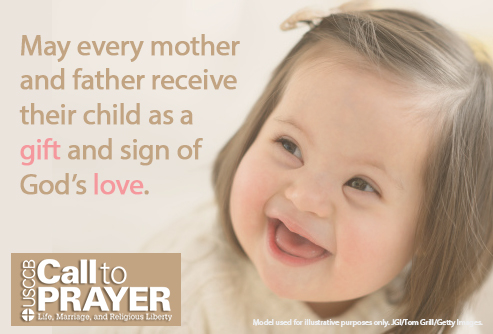
Archive
Intern Post: The Mercy of Indissolubility
Growing up with three brothers, I remember a lot of forced apologies being exchanged back and forth between us. My parents would make us say the words before we were actually ready to apologize for (or forgive) whatever nastiness was inflicted that day. But however hurt or angry we were at the moment, there was never a question in our minds about whether we loved one another. We belonged to each other and wouldn’t have had it any other way. Being family and loving one another went hand-in-hand.
Love sees beyond what is broken, rude, selfish, or mean in the other person’s action and reaches out a hand to heal the relationship. By making my brothers and me practice forgiveness in the everyday offenses of life, my parents were leading us to understand mercy: it makes things right between us.
Throughout the Old Testament we see a cycle of betrayal and mercy played out between Israel and the Lord. Over and over, Israel abandons God for their own desires, but the Lord continually draws her back to himself because he chose her and he is faithful to the covenant he made. In the book of Hosea in particular, the relationship of a married couple is used to reveal the steadfastness of God’s love for Israel. No matter what she does, He remains faithful.
A sacramental marriage helps those who witness it to understand God’s fidelity to his people. Indissolubility is a gift of mercy, because it makes the relationship of the couple true to what love is: a complete gift of oneself that can’t be taken back. A person in love does not promise their beloved the next three years; they promise forever![1] “The gift of indissolubility means that despite the vicissitudes and suffering that come with human failure and sin, the sacramental marriage bond remains an abiding source of mercy, forgiveness, and healing.”[2] To deny the indissolubility of marriage would be an affront against the sacrament of marriage because it would deny the reality of grace and its power to heal and perfect a person.
I came across a beautiful reflection about marriage recently on a blog site. A woman was reflecting on her experience of learning to have mercy on her husband who was struggling with clinical depression. She said, “Through mercy, God taught me to love my husband as we all deserve to be loved—with a love devoid of self, thinking only of the good of the other person.”[3] While her husband was sick, she, “picked up his cross for him, as Jesus does for us, and bore his malaise and withdrawal in loving silence.” By showing mercy rather than demanding justice, the couple was able to maintain peace and goodwill during his illness. Mercy itself is not a cure for depression, but it helped this couple to preserve their relationship in a difficult time. The wife realized that she needed to be kind and selfless, and not seek justice but rather have mercy, and finally when she did that she found, “I no longer cared about justice.”
It can be said of the practice of reconciliation that it “washes away small offenses, but it also protects from great offenses. Pardon confers a habitus of communion.”[4] Mercy towards siblings, in my case, and a husband in the case of the blog contributor is an expression of a disposition toward communion. It is a desire to be united to the other person, even after they have hurt you. A married couple that frequently seeks and offers mercy reinforces their “togetherness” or communion so that when serious trials arise they have already practiced drawing towards one another. The indissoluble bond of marriage not only calls a couple to be merciful toward each other, but indissolubility also reveals God’s own mercy, because when he binds two people together in the sacrament, he gives them the graces they need to live it out.
[1] There is a new concept about marriage out there these days called a “wed-lease,” which turns marriage into something more like a business contract: https://www.washingtonpost.com/opinions/a-high-divorce-rate-means-its-time-to-try-wedleases/2013/08/04/f2221c1c-f89e-11e2-b018-5b8251f0c56e_story.html. This is not true to what love is.
[2] Healy, N. (2014). The Merciful Gift of Indissolubility. Communio International Catholic Review, 41.2. Retrieved from http://www.communio-icr.com/files/healy41-2.pdf
[3] “Ode to Feminine Genius: A Merciful Woman.” Catholic Sistas. Aug. 28, 2014. http://www.catholicsistas.com/2014/08/ode-feminine-genius-merciful-woman/
[4] Laffitte, J.(2015). The Choice of the Family. New York: Image, p. 143.
Written by the Spring Intern in the Promotion and Defense of Marriage Secretariat.
Archive
Bishops of Northern Ireland
The bishops of Northern Ireland wrote an open letter to members of the legislative assembly regarding the proposal of same-sex “marriage”
—————————————————————-
Dear Member of the Legislative Assembly,
Today, Monday 2 November, members of the Northern Ireland Assembly will debate a motion calling on the Northern Ireland Executive ‘to table legislation to allow for same-sex marriage’.
As pastors and teachers we have a responsibility to offer guidance to members of the Church and to participate with other citizens in debating the values and laws that ensure the authentic common good of society.
In public debate about the nature of marriage and the family it can sometimes be lost that the Church’s first words to all who experience homosexual attraction are those of love, understanding and a desire to journey supportively with all who follow Jesus with a sincere heart. The Church teaches that every person must be welcomed with respect for their dignity and with care to avoid “any form of unjust discrimination”(Congregation for the Doctrine of the Faith, Considerations Regarding Proposals to Give Legal Recognition to Unions Between Homosexual Persons, 2003, n.4).
In the context of the forthcoming Assembly debate, we wish to express our particular concern that the motion presented provides no detail whatsoever of the scale or scope of the legislation being proposed. It is also completely silent on the vital issue of respect for individual religious conscience and protections for Churches and other religious groups. Those who vote in favour of this motion have no way of knowing what the full consequences of such a vote will be. What will be the impact for services provided by Churches and other faith groups that offer vital support to marriages and families in all kinds of distress and thereby contribute to the well-being of children and society? The failure of legislators to provide any form of protection for Catholic Church-related adoption agencies that have had to close in recent years is a stark warning to all who value the wide range of social and pastoral services that Churches provide. The motion being debated in the Assembly fails completely to protect the future of these services and their right to operate within the religious ethos from which they were founded and continue to provide a valued service to communities.
We ask you especially as a legislator to keep the rights and welfare of children to the forefront of your considerations when voting on the forthcoming motion. Religious and non-religious people alike have long acknowledged and know from their experience that the family, based on the marriage of a woman and a man, is the best and ideal place for children. The proposed motion before the Assembly effectively says to parents, children and society that the State should not, and will not, promote any normative or ideal family environment for raising children. It therefore implies that the biological bond and natural ties between a child and its mother and father have no intrinsic value for the child or for society. As Pope Francis stated recently, “we must reaffirm the right of children to grow up in a family with a father and a mother capable of creating a suitable environment for the child’s development and emotional maturity” (16 April 2014). We also reiterate the objective truth, affirmed by the recent Synod on the Family, that “there is no foundation whatsoever to… establish an even remotely analogous correspondence between homosexual unions and God’s plan for marriage and the family“ (Synod 2015, Relatio Finalis, n.76).
The truth about marriage derives from its intrinsic nature as a relationship based on the complementarity of a man and woman and the unique capacity of this relationship alone to generate new life. This truth does not change with the shifting tides of historical custom or popular opinion.
Finally, we appeal to members of the Northern Ireland Executive and Assembly to give urgent priority to the many other issues that impact on children, marriage and the family in our society, including the continued failure to lift the distressing levels of child poverty in Northern Ireland, which are among the highest in Western Europe, and the immense stress being caused to many individuals, families and marriages because of proposed welfare cuts and the long term social disadvantage to which so many in Northern Ireland continue to be subjected.
With respect and encouragement for your important work as a public representative.
Yours faithfully,
+Eamon Martin
Archbishop of Armagh
+Anthony Farquhar
Auxiliary Bishop of Down and Connor
+John McAreavey
Bishop of Dromore
+Liam MacDaid
Bishop of Clogher
+Donal McKeown
Bishop of Derry
+Noël Treanor
Bishop of Down and Connor
Archive
Bishop Conley: “To Deny Reality”
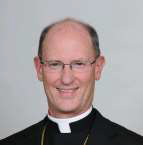 Bishop Conley of the Diocese of Lincoln, Nebraska wrote a column in the Southern Nebraska Register entitled “To Deny Reality” referencing the Supreme Court decision that redefined marriage throughout the country.
Bishop Conley of the Diocese of Lincoln, Nebraska wrote a column in the Southern Nebraska Register entitled “To Deny Reality” referencing the Supreme Court decision that redefined marriage throughout the country.
Bishop Conley began the column speaking about the call to all human persons to “live in families patterned after the divine communion of the Most Holy Trinity, the divine family of God.” He continued on to say that, “Because God created us to live in the image of his divine communion, children have a natural right to live in families of one man and one woman.”
Bishop Conley used quotes from the 2003 document from the Congregation for the Doctrine of the Faith “Considering Regarding Proposals to Give Legal Recognition to Unions between Homosexual Persons” which is still the touchstone Vatican document on this question. The bishop showed that the government has done harm to the common good by ignoring the fundamental value of the natural family, and said that “Catholics cannot deny reality.”
Drawing practical conclusions from the Vatican document, Bishop Conley explained to the faithful: “Catholics cannot directly facilitate any government action to sanction same-sex unions as marriage. And they must resist even cooperation in same-sex marriage.” He noted that this may sometimes mean leaving one’s position, which he called a “heroic witness.” He asked any Catholic who finds him- or herself in this position to speak to his or her pastor about it. And finally, Bishop Conley reminded his readers that God gives us the grace to be faithful to Him, and, “Everything we do should be in gratitude to that grace. And each of us should do all that we can to reveal that truth to the world.”
Archive
Ireland Referendum
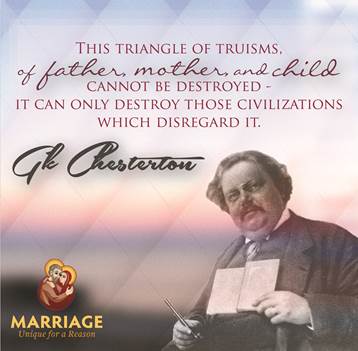 Please remember to pray and fast for Ireland today, as they head to the polls to vote in the same-sex “marriage” referendum.
Please remember to pray and fast for Ireland today, as they head to the polls to vote in the same-sex “marriage” referendum.
Archive
Archbishop Gomez on Marriage and Religious Freedom
This Easter, as we celebrate the Resurrection, we may also contemplate the gift of religious freedom; a gift that sometimes requires vigilance.
Archbishop Gomez of Los Angeles wrote an article for The Tidings Newspaper in which he highlighted the importance of marriage and family to the plan of God, and the necessity of all citizens to be able to express their views about it. He noted, “Those who govern and shape the way Americans think and behave — in politics and law, education, entertainment and the popular media — form an increasingly secularized elite that has little tolerance for religious institutions or values.”
Regarding marriage, Archbishop Gomez reminded us that, “In his own teaching, Jesus pointed us back to this “beginning.” He told us that the marriage covenant between man and woman is at the heart of God’s design for creation — and that no one has the power to change that design.”
He encouraged us to pray for our country, and said, “But I’m sad to say that right now across the country, others are trying to impose their “faith” — a secularized ideology and an anti-religious morality — on religious believers and it is our rights that are at risk of being denied.”
Archive
50 Hues not 50 Shades
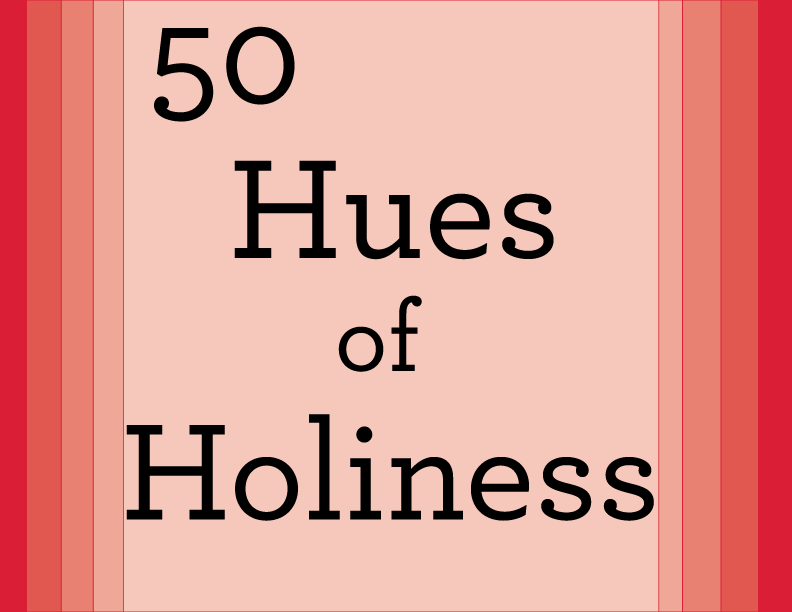 In light of the cultural phenomenon of Fifty Shades of Grey, the bishops and other religious leaders have responded, reminding us all of the truth and beauty of the gift of sexuality in marriage. Here are some of the responses:
In light of the cultural phenomenon of Fifty Shades of Grey, the bishops and other religious leaders have responded, reminding us all of the truth and beauty of the gift of sexuality in marriage. Here are some of the responses:
Bishop Richard Malone, Chairman of the Committee on Laity, Marriage, Family Life and Youth: Letter to Bishops
Archbishop Dennis Schnurr: Note to Pastors
Bishop Paul Loverde: Porn Goes Mainstream
Religious Alliance against Pornography Statement, signed by several Catholic Bishops
Morality in the Media: Statement
Let us pray for all those involved in the film, and for all those planning to see it this weekend.
Archive
Archbishop Coridileone supports SMDA
Representative Randy Weber and Senator Ted Cruz reintroduced legislation into the House and Senate that would protect states’ marriage amendments: the State Marriage Defense Act. Archbishop Cordileone sent them each a letter of support (Cruz and Weber) and announced this for the media.
Let us keep praying and fasting!
Archive
SCOTUS Accepts Case, Archbishop Responds
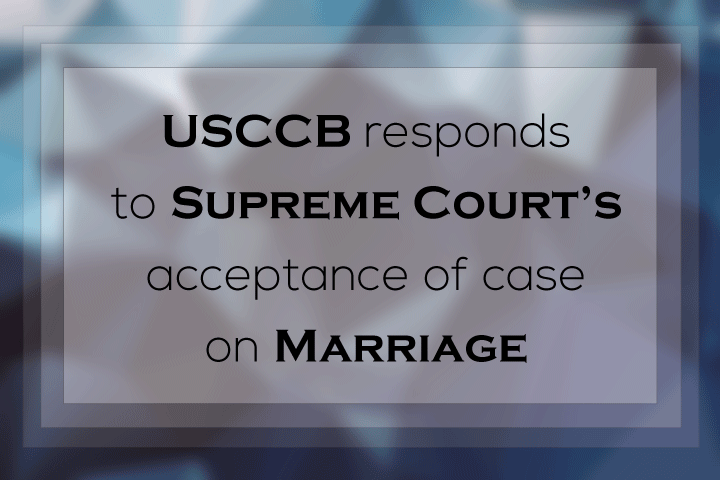 Archbishop Cordileone of San Francisco responded to the announcement on Friday that the Supreme Court will hear the Sixth Circuit marriage cases.
Archbishop Cordileone of San Francisco responded to the announcement on Friday that the Supreme Court will hear the Sixth Circuit marriage cases.
The Archbishop notes, “Only a man and a woman can unite their bodies in a way that creates a new human being. Marriage is thus a unique and beautiful reality which a society respects to its benefit or ignores to its peril.”
Archive
Florida Bishops Respond to Marriage Redefinition
Marriage licenses were issue for the first time today in Florida, after the expiration of a stay from the U.S. District Court ruling. The bishops of Florida wrote a statement in response.
The bishops note, “How society understands marriage has great public significance” and that redefining marriage, “advances the notion that marriage is only about the affective gratification of consenting adults. Such a redefinition of marriage does nothing to safeguard a child’s right to a mother and father and to be raised in a stable family where his or her development and well-being is served to the greatest extent possible.”
The bishops also note the wide range of laws that are affected by the change in definition. “These laws also affect and pervasively regulate public and private institutions including religious institutions, such as churches, schools, and hospitals. Besides the predictably disruptive effects, imposing this redefinition of marriage threatens both religious liberty and the freedom of individuals to conscientiously object as already seen in those states that have redefined marriage to accommodate same sex couples.”
Archive
Pope’s Address at International Colloquium
This week at the Vatican there is an International & Interreligious gathering centering on “The Complementarity of Man and Woman in Marriage.” Archbishop Cordileone of San Francisco, the Chairman of the Subcommittee for the Promotion and Defense of Marriage is among those attending.
The Holy Father opened the Colloquium with an address this morning, November 17. He reiterates:
“Children have a right to grow up in a family with a father and a mother capable of creating a suitable environment for the child’s development and emotional maturity. That is why I stressed in the Apostolic Exhortation Evangelii gaudium that the contribution of marriage to society is ‘indispensable’; that it ‘transcends the feelings and momentary needs of the couple’ (n. 66). And that is why I am grateful to you for your Colloquium’s emphasis on the benefits that marriage can provide to children, the spouses themselves, and to society.”
He continues, “May this colloquium be an inspiration to all who seek to support and strengthen the union of man and woman in marriage as a unique, natural, fundamental and beautiful good for persons, families, communities, and whole societies.”
Pope Francis also confirmed in this address that he will be coming to Philadelphia for the World Meeting of Families!
Archive
U.S. Court of Appeals: Sixth Circuit Marriage Decision
Good news! Judges of the Sixth Circuit upheld marriage in that district. Read Archbishop Cordileone’s comments in the USCCB Media release.
USCCB Chairman Praises Sixth Circuit Decision Upholding Marriage
November 7, 2014
WASHINGTON—Archbishop Salvatore J. Cordileone of San Francisco, chairman of the USCCB Subcommittee for the Promotion and Defense of Marriage, praised the decision by the U.S. Court of Appeals for the Sixth Circuit upholding the rights of states to legally recognize and protect the meaning of marriage as exclusively between one man and one woman.
“The Sixth Circuit has upheld the rights of the citizens of Michigan, Ohio, Kentucky and Tennessee to protect and defend marriage as the unique relationship of a man and a woman,” Archbishop Cordileone said. “We are particularly heartened by the Court’s acknowledgment of the reasonable arguments for preserving the true definition of marriage and by the Court’s respect for the self-determination of states on this issue.”
The Court’s opinion included an argument grounding marriage in the complementarity of man and woman, saying: “It is not society’s laws or for that matter any one religion’s laws, but nature’s laws (that men and women complement each other biologically), that created the policy imperative.”
The Court’s opinion also argued for the rationality of the states’ protecting marriage’s unique meaning: “By creating a status (marriage) and by subsidizing it (e.g., with tax-filing privileges and deductions), the States created an incentive for two people who procreate together to stay together for purposes of rearing offspring. That does not convict the States of irrationality, only of awareness of the biological reality that couples of the same sex do not have children in the same way as couples of opposite sexes and that couples of the same sex do not run the risk of unintended offspring. That explanation, still relevant today, suffices to allow the States to retain authority over an issue they have regulated from the beginning.”
Archbishop Cordileone said, “The Church continues to support efforts to promote, protect and defend marriage in the law. We pray in solidarity with all people that the authentic meaning of marriage will be protected and honored in this country, for the good of all.”
Those challenging the marriage laws in Michigan, Ohio, Kentucky and Tennessee are expected to petition the Supreme Court to review the decision by the U.S. Court of Appeals for the Sixth Circuit.
Archive
USCCB Chairmen express grave disappointment toward Supreme Court’s Action
Today the Chairmen of the U.S. Conference of Catholic Bishops’ Committee on Laity, Marriage, Family Life and Youth, Bishop Richard J. Malone of Buffalo, New York, and the chairman of the USCCB’s Subcommittee for the Promotion and Defense of Marriage released a statement about the Supreme Court’s action.
Read the whole statement here.
Also, the Virginia Bishops together responded with their own statement. Virginia’s appeal was one of the many that the Court denied.
UPDATE: Archbishop Cordileone also released a statement on the U.S. Court of Appeals for the Ninth Circuit decision on October 7. He characterized the decision as “astonishingly dismissive” of the rights of children and the democratic process.
Archive
Pope Francis Homily for Wedding
On the Feast of the Exaltation of the Holy Cross (September 14, 2014) the Holy Father received the vows of 20 couples, joining in the Sacrament of Marriage. This is an excerpt from his homily, highlighting the beauty of sexual difference:
“The love of Christ, which has blessed and sanctified the union of husband and wife, is able to sustain their love and to renew it when, humanly speaking, it becomes lost, wounded or worn out. The love of Christ can restore to spouses the joy of journeying together. This is what marriage is all about: man and woman walking together, wherein the husband helps his wife to become ever more a woman, and wherein the woman has the task of helping her husband to become ever more a man. This is the task that you both share. “I love you, and for this love I help you to become ever more a woman”; “I love you, and for this love I help you to become ever more a man”. Here we see the reciprocity of differences. The path is not always a smooth one, free of disagreements, otherwise it would not be human. It is a demanding journey, at times difficult, and at times turbulent, but such is life!”
Archive
Cardinal George on “A Tale of Two Churches”
Cardinal George reflects in the Archdiocese of Chicago’s newspaper on the way that the current American culture requires us to choose between our faith and full civic participation, since the dominant ideology has become like a religion.
He writes: “Swimming against the tide… means that those who choose to live by the Catholic faith will not be welcomed as political candidates to national office, will not sit on editorial boards of major newspapers, will not be at home on most university faculties, will not have successful careers as actors and entertainers…. the practice of medicine and law will become more difficult for faithful Catholics. It already means in some States that those who run businesses must conform their activities to the official religion or be fined, as Christians and Jews are fined for their religion in countries governed by Sharia law.”
The Cardinal also points out that, “American civil law has done much to weaken and destroy what is the basic unit of every human society, the family. With the weakening of the internal restraints that healthy family life teaches, the State will need to impose more and more external restraints on everyone’s activities.”
Thanks to the Cardinal who has such a gift for seeing and guiding us! Let’s pray for him and all our bishops!


